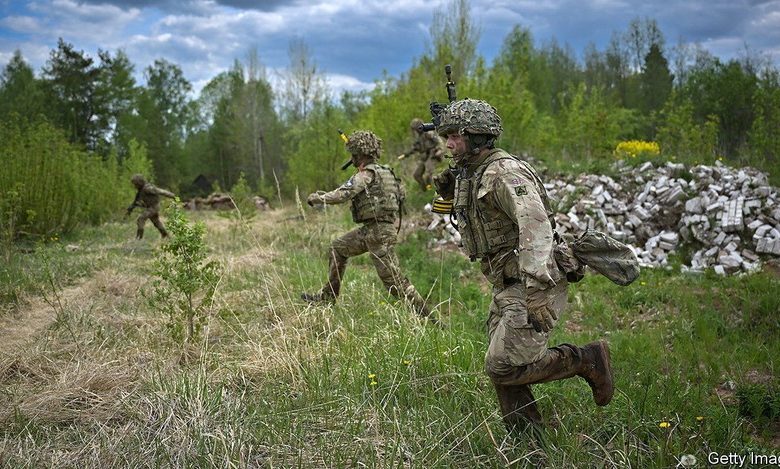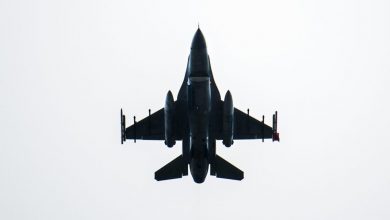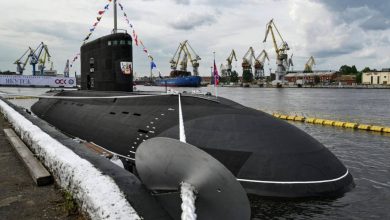Jordan’s King Abdullah Calls for a ‘Middle East NATO’

The monarch previously called for a ‘Sunni crescent’ to oppose the ‘Shiite crescent’ being built by Iran
King Abdullah II of Jordan said he backs the establishment of a West Asia military alliance similar to NATO, and that it can be assembled of like-minded countries.
The kingdom works actively with NATO and sees itself as its partner, having fought shoulder to shoulder with the alliance’s troops for decades.
“I’d like to see more countries in the area come into that mix,” he said. “I would be one of the first people that would endorse a Middle East NATO.”
But Oraib Rantawi, the founder and director-general of the Amman-based Al Quds Center for Political Studies, told The Media Line that the king’s statements are “confusing” and “came as a surprise to Jordanian public opinion.
“Jordanians are in a constant confrontation state of mind regarding Israel against the background of Israel’s policy in the occupied territories and escalation in Jerusalem, in particular the systematic Israeli targeting of Al-Aqsa Mosque and the Hashemite custodianship of Al-Aqsa Mosque and repeated Israeli statements that are destroying the two-state solution,” Rantawi said.
He questioned the timing of the “talk of a Middle Eastern alliance,” wondering what has changed for Jordan that it wants to join such a group.
Abdullah, in an interview with CNBC on Friday, said the coalition must have a clear and defined role.
“The mission statement has to be very, very clear. Otherwise, it confuses everybody,” he said.
Rantawi said, “The king in the interview did not reveal any details. The conversation was vague. But just talking about a Middle Eastern NATO, you put things in the context of targeting Iran in an alliance with Israel.”
He added that other Arab governments had made their positions on such a pact clear.
“What is remarkable is that we do not see similar enthusiasm on the part of the Gulf states, including the United Arab Emirates, or Arab states like Egypt, which previously announced that it would not be a member of an axis or alliance against a particular country,” said Rantawi.
Washington held a secret meeting of top military officials from Israel and Arab countries to “explore how they could coordinate against Iran’s growing missile and drone capabilities,” the Wall Street Journal reported on Sunday, citing officials from the US and the region.
The talks were held in Sharm el-Sheikh, Egypt, bringing Arab and Israeli military officials together for the first time, according to the report.
The Journal added, “The UAE is not aware of any formal discussions relating to any such regional military alliance.”
A new diplomatic and security alliance would be part of reshaping the Middle East as former enemies seek to establish a united front to contain a common foe, Iran, at a time when the perception in the region is that Washington is abandoning them as it shifts it attention to China, while both Beijing and Moscow work to fill the gap left by the US in the region.
With the Russian invasion of Ukraine beginning in February and the subsequent need for new sources of energy to fill the vacuum left by sanctions on Russian oil and gas, the Biden administration is looking eastward toward the Gulf states led by Saudi Arabia to increase their output.
But the Gulf states had been furious with the US over its diminished role in the region, and the fear that Washington may be willing to sign a nuclear deal with Iran that doesn’t take into account their concerns.
Biden is scheduled to visit the region next month, with stops in Israel, the West Bank, and a crucial two-day meeting in Jeddah with Saudi, Gulf, and other Arab leaders as he tries to repair tense ties with Riyadh and bridge the gap between Israel and Saudi Arabia.
Some observers say the Middle East is on the cusp of major changes, arguing that with Iran being a common threat to many Arab states and Israel, this may lead to the creation of a new alliance that includes them against their enemy.
Abdullah was the first to openly talk about this alliance. He previously warned publicly against the formation of the so-called Shiite crescent composed of Iran, Iraq, Syria, and Lebanon, suggesting the response should be to form a Sunni crescent.
However, Rantawi said talk about a new alliance that Amman is behind or supports is concerning and confusing to many Jordanians.
Retired Iraqi Maj. Gen. Majid al-Qubaisi told The Media Line that Biden’s expected visit to the region will largely focus on this topic.
“Talks are taking place and it is expected that this alliance will include Gulf states, in addition to Israel, Iraq, Egypt, and Jordan. Its goal is to form a frontline to confront Iran’s interference and expansion in its neighboring regions in Iraq, Syria, and Lebanon,” he said.





